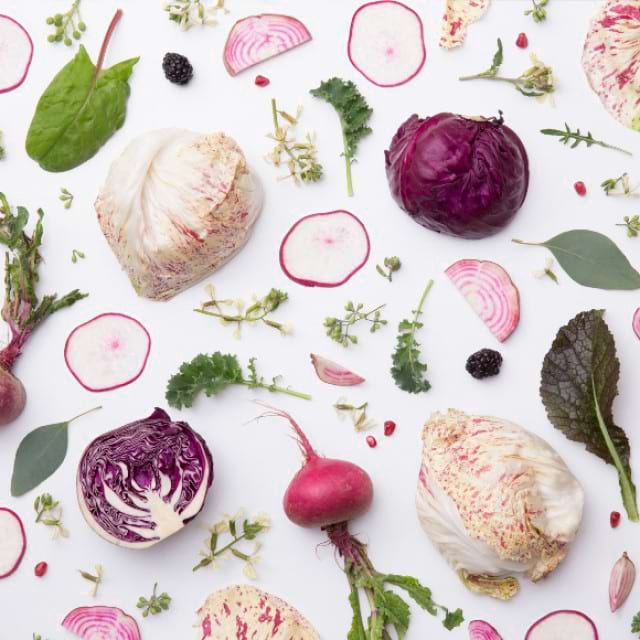We’ve shared part one of Danielle Heyhoe’s insight into nutrition for healthy skin and hair. Well, our nutritionist and Glasshouse girl is back with the second leg of the series, concluding her guide with all the information you need for a skin-friendly diet. Make sure you check out Danielle’s website for even more of an insight into the world of nutrition…
In the first half of the series, I mainly focused on the in’s and out’s of our skin and the effect our hormones can have on it. Here I continue with diet-specific information and the impact of certain nutrients on our overall wellbeing, but specifically on our skin.
Diet
In a world bloated by packeted food and high-fructose corn syrup, it can be difficult to know how to navigate a low-glycaemic diet that will increase our sensitivity to insulin. The number one question to ask yourself when eating is; does this constitute real food? If you’re eating plenty of vegetables, some fruits, quality meat (if you eat meat), fish, nuts, seeds, quality fats like coconut oil, avocado, coconut cream, and grass-fed butter, then your answer will be yes.
Eat food that is in its most natural form, or which has one degree of separation from its natural form. For example, butter doesn’t directly come out of a cow, but if cream is churned it develops into butter, without anything added or taken away from it. Avoid sugar, processed foods, and refined carbohydrates, such as pastry, pasta, and white breads, still allowing for the occasional treat on the weekend. This way of eating will correct your insulin levels and promote the reversal of Insulin Resistance. This is something I work on directly with my clients; as for some people reversing Insulin Resistance can be a little tricky. Make sure you do this safely.
Nutrients
There are a number of key nutrients to keep in mind when promoting nourished healthy skin.
Zinc helps promote scar healing. It is also a great nutrient for balancing oil on the skin as it supports healthy hormones. When it comes to hair, zinc helps nourish the scalp and supports the integrity and strength of the hair. Zinc deficiency, which isn’t very common, causes hair loss and a dry, flaky scalp. Foods rich in zinc include beef, lamb, poultry, eggs, pumpkin seeds, sunflower seeds, cashew nuts, and cacao powder.
Vitamin A is very helpful for treating problem skin. It helps to inhibit over active oil glands and suppress testosterone formation. A diet deficient in vitamin A results in scaly, rough, dry skin. Foods that increase vitamin A in your diet include liver, cod liver oil, grass-fed butter, and eggs. Some vegetable sources include sweet potatoes, dark leafy greens, and squash. Make sure you consume vitamin A with quality fats, as it requires fat for absorption.
Vitamin C plays an important structural component in protein collagen, which creates stability in the skin. Increasing vitamin C in the diet is associated with less wrinkling. The best way to do this is through eating plenty of vegetables; dark leafy greens, broccoli, kiwi fruits, citrus fruits, and capsicums.

Omega-3 fatty acids have shown to decrease the presence of acne, whereas omega-6 fatty acids have been associated with skin inflammation and reddened skin. Research shows that our Western diets are far too high in omega-6, which not only causes inflammation of the skin, but internal inflammation, which leads to disease, cancer, and infertility. Omega-3 foods include cold water fish like salmon or mackerel, perhaps even taking a cod liver supplement. On the other hand, to avoid omega-6, avoid industrialised seed oils found in fast food, processed foods, and store-bought sauces.
Biotin promotes proper fatty-acid metabolism. Fats are important for healthy skin as they protect the skin from external damage and water loss. The best sources of biotin rich foods include egg yolks, chard, lettuce, almonds, and walnuts.
Sulfur is important for collagen, which gives strength and structure to the skin. It is the breakdown of collagen that causes wrinkles. A diet rich in sulfur can also slow down the visible signs of aging. It is found in poultry, egg yolks, meat, fish and plant sources like garlic, onions, brussel sprouts, and kale.
Vitamin K2 helps to slow down aging and prevent wrinkling. Vitamin K2 gives your skin that bounce-back ability, supporting the elasticity in the skin. Note that the benefits of vitamin A rely heavily on the presence of vitamin K2 in the diet, so make sure you consume foods containing both these nutrients. The best sources of vitamin K2 include grass-fed meat and butter, liver, and egg yolks. A good plant-based source of vitamin K2 are fermented foods like sauerkraut or kimchi.
Probiotics are important for healthy looking skin as they improve gut health significantly, and research shows that there is a direct correlation between our microbiota (the bacterial balance in the gut) and acne. You can obtain probiotics from unsweetened yoghurt, kimchi, sauerkraut and kefir. It can also be supplemented.
No matter how many skin products we try, however many chemical peels available to us, nothing will increase the quality and appearance of our skin like a nutrient-dense diet. Nutrition improves every area of our health including our moods and emotions, energy and hormone levels, and especially our glow. Delight in all the delicious colourful plant foods and nourishing natural fats available, and you will reap their benefits of confidence, radiance, and beauty.
Words: Danielle Heyhoe
Cover image: Free People




